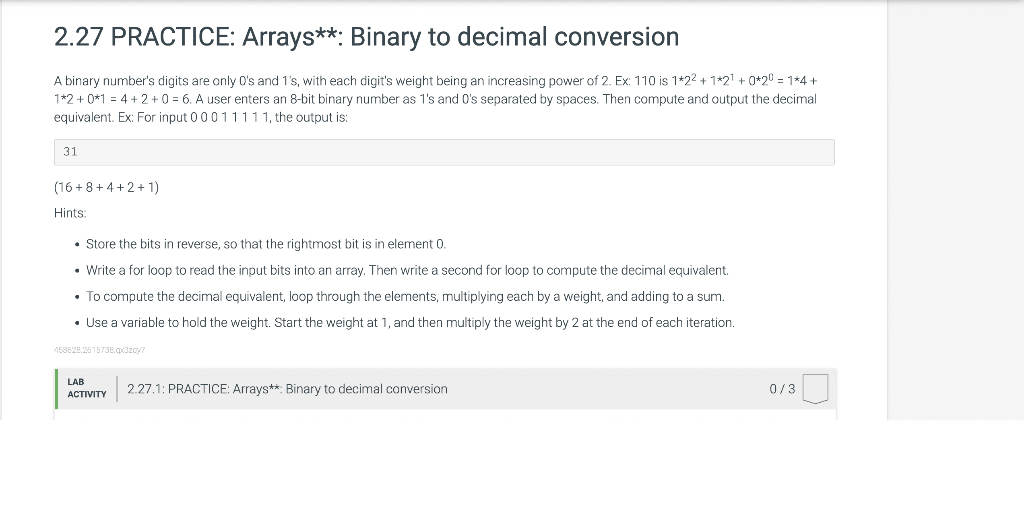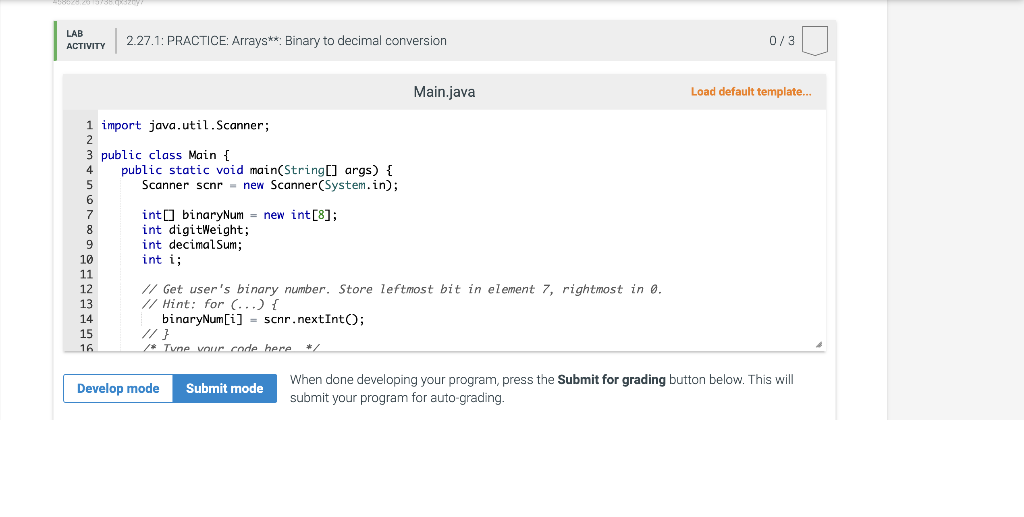Answered step by step
Verified Expert Solution
Question
1 Approved Answer
I need answer for this please 2.27 PRACTICE: Arrays : Binary to decimal conversion A binary number's digits are only 0 's and 1 's,
I need answer for this please


Step by Step Solution
There are 3 Steps involved in it
Step: 1

Get Instant Access to Expert-Tailored Solutions
See step-by-step solutions with expert insights and AI powered tools for academic success
Step: 2

Step: 3

Ace Your Homework with AI
Get the answers you need in no time with our AI-driven, step-by-step assistance
Get Started


